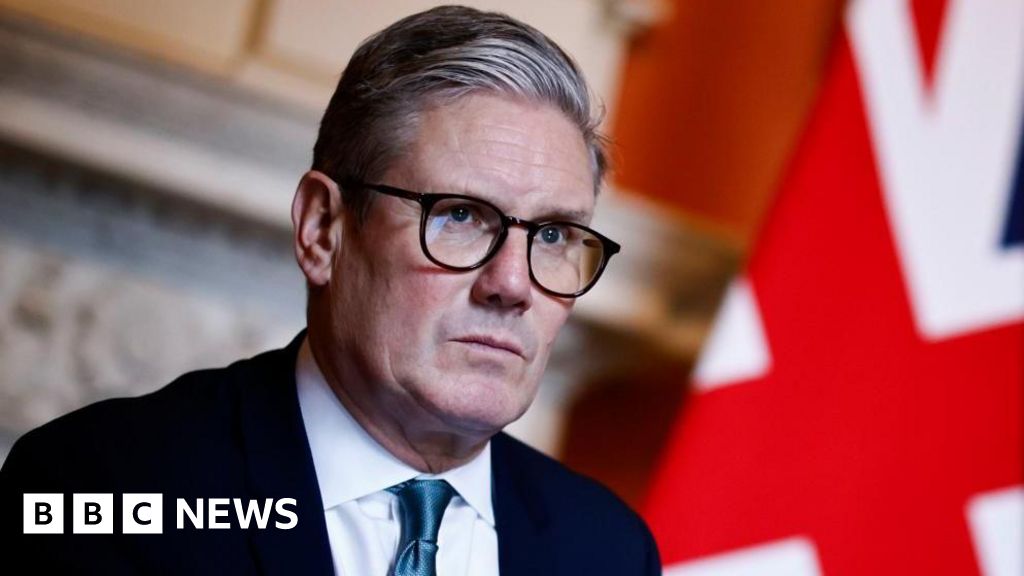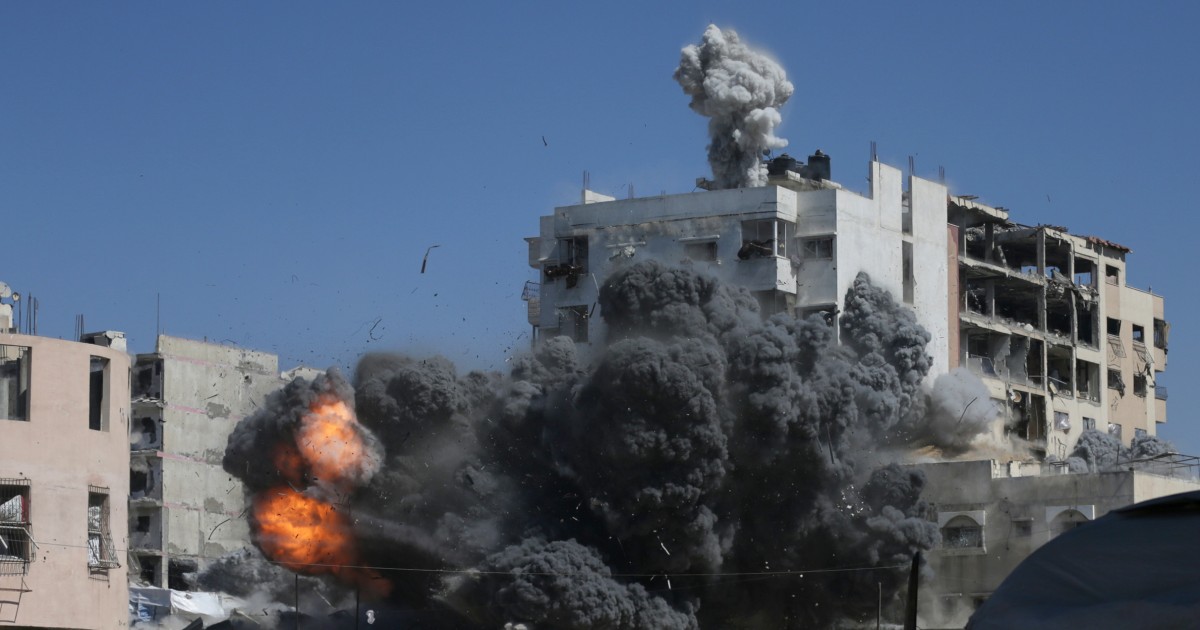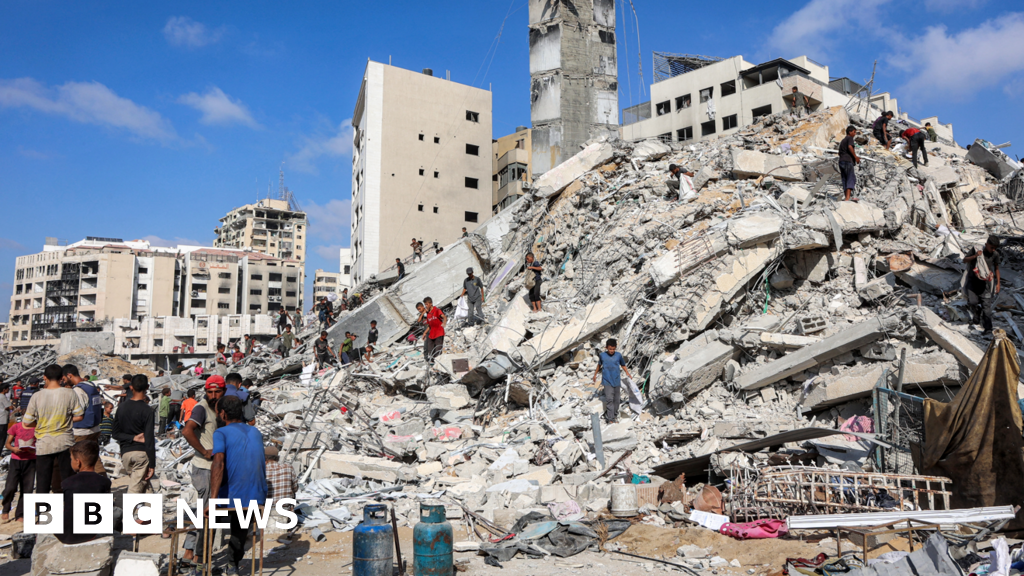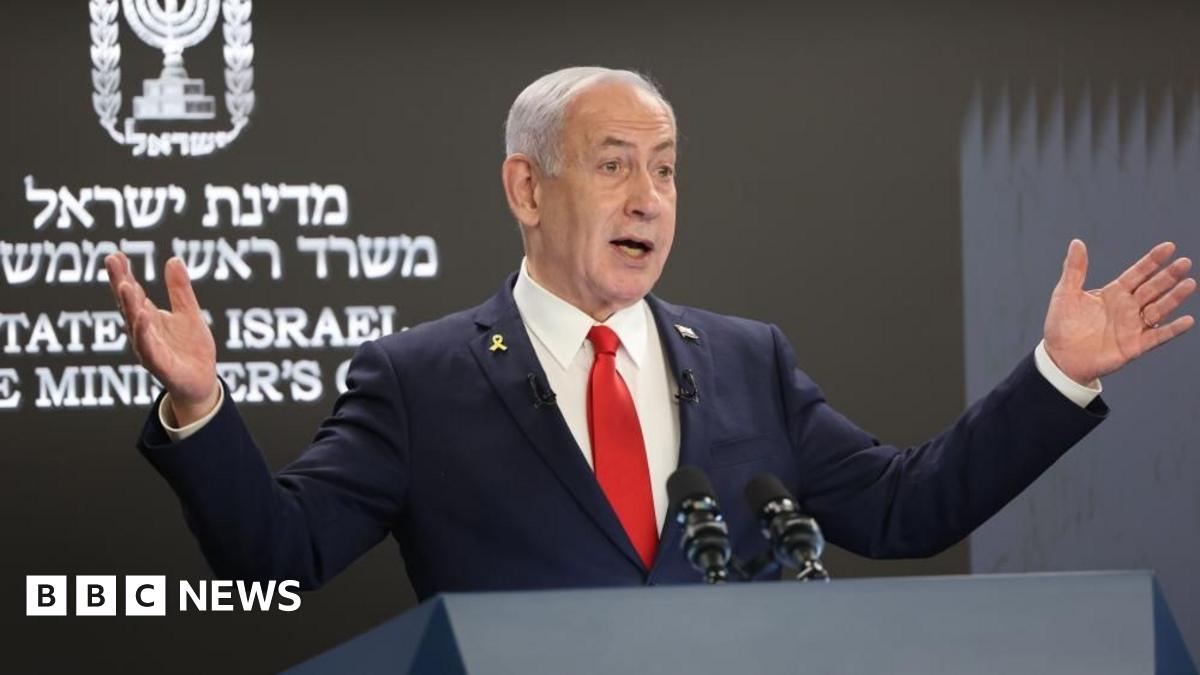Tensions Rise as Netanyahu Vows Retaliation Against Recognition of Palestine

Introduction
In the midst of renewed efforts for a two-state solution in the Israel-Palestine conflict, tensions are high as Israeli Prime Minister Benjamin Netanyahu promises retaliation against any country that recognizes Palestine as a state at the United Nations. This retaliation comes as France and Saudi Arabia convene a summit to push for a peace agreement between the two nations.
Current Situation
Netanyahu's statement comes as a response to recent announcements from several European countries, including France, Sweden, and Ireland, to recognize Palestine as a state. While the Israeli leader has long opposed the idea of a Palestinian state, his latest comments indicate a willingness to take a hardline stance against any potential recognition.
The Two-State Solution
The two-state solution, which would see the establishment of an independent Palestinian state alongside Israel, has been a long-standing goal for many countries and organizations. However, with the recent annexation of the West Bank by Israel and ongoing tensions in the region, the likelihood of this solution seems increasingly uncertain.
About the People Mentioned
Benjamin Netanyahu
Benjamin Netanyahu, born on October 21, 1949, in Tel Aviv, Israel, is a prominent Israeli politician and diplomat who has served as Prime Minister of Israel three times (1996–1999, 2009–2021, and from 2022 onwards). He began his career in the Israeli military's special operations and later transitioned into politics in the late 1980s, joining the Likud party[1][2]. Netanyahu first became prime minister in 1996, during which time he signed the Hebron and Wye Accords, advancing peace efforts with the Palestinians. His administration focused on economic reforms such as government privatization, liberalizing currency regulations, and reducing deficits. After losing the 1999 election, he served as foreign minister and finance minister before reclaiming the Likud leadership in 2005[1][3][4]. Returning as prime minister in 2009, Netanyahu formed a national unity government and proposed a demilitarized Palestinian state recognizing Israel as the Jewish state, emphasizing security concerns. His tenure was marked by fluctuating peace negotiations with the Palestinians and contentious policies including settlement expansions. He also maintained a hawkish stance on Iran and supported the Iraq war[1][3][5]. In 2022, Netanyahu made a political comeback as prime minister, leading a coalition that included far-right parties. His leadership during this period has been pivotal amid the 2023–2024 Israel-Hamas conflict, with significant domestic and international implications[2]. Netanyahu is Israel’s longest-serving prime minister and remains a central figure in Israeli politics, known for his strong security policies, economic reforms, and complex role in the Israeli-Palestinian conflict. His career has been marked by both political resilience and controversy, reflecting his enduring influence on Israel’s domestic and foreign affairs[2][3][5].
About the Organizations Mentioned
United Nations
The United Nations (UN) is a pivotal international organization established in 1945, following the devastation of World War II, with the primary goal of maintaining global peace and security, fostering international cooperation, and promoting social progress. The UN Charter, signed by 51 founding member states, including the United States, the United Kingdom, China, and the Soviet Union, laid the foundation for this ambitious endeavor[1][3]. ## History and Structure The UN was born out of the failures of its predecessor, the League of Nations, which failed to prevent World War II. Key planning meetings, such as the Dumbarton Oaks Conference in 1944, defined the UN's structure, which includes the General Assembly, the Security Council, the Economic and Social Council, the Trusteeship Council, the International Court of Justice, and the Secretariat[1][6]. The Security Council, with five permanent members (the United States, China, France, Russia, and the United Kingdom), holds significant influence due to its veto power[2]. ## Key Achievements Over the years, the UN has played a crucial role in conflict resolution, human rights advocacy, and sustainable development. Notable achievements include the establishment of the Universal Declaration of Human Rights in 1948 and the implementation of numerous peacekeeping missions worldwide[3][4]. The UN has also been instrumental in addressing global challenges such as climate change and pandemics through its various programs and agencies. ## Current Status Today, the UN comprises 193 member states, with its most recent addition being South Sudan in 2011[5]. The organization continues to evolve, addressing emerging issues like digital governance and cybersecurity. Despite challenges, the UN remains a cornerstone of international diplomacy and cooperation. ## Notable Aspects The UN's work is not limited to politics; it also impacts business and technology through initiatives that promote sustainable development and digital inclusion. Its role in setting global standards and fostering international cooperation makes it a significant player in shaping the
France
France is a leading global economic and political entity rather than a conventional organization. It is a semi-presidential republic with Paris as its capital and largest economic and cultural center[2]. Economically, France ranks as the world’s ninth-largest economy by purchasing power parity and the second largest in the EU, maintaining a diversified and robust industrial and service sector. It is a major manufacturing hub in Europe, the third largest after Germany and Italy, and a top agricultural producer within the EU[2]. Historically, France has been a major player in international affairs as a founding member of the European Union, OECD, G7, and G20, reflecting its enduring influence in both global governance and economic policy[2]. Its economy features significant government involvement and a social market structure that balances free market capitalism with social welfare policies[2]. France also ranks highly on innovation indexes, placing 12th globally in 2024, reflecting strong investments in education, research, and technology[2][5]. Key achievements include substantial progress toward environmental sustainability. Since 1990, France has reduced its greenhouse gas emissions by 35%, aligning with the Paris Agreement goals. It leads in ecological protection, notably in its vast maritime zones and overseas territories[1]. The country is actively transforming its economy by promoting renewable energy, electrification of transport, and sustainable food consumption to meet ambitious climate targets by 2030 and carbon neutrality by 2050[1]. Currently, France’s economy is experiencing moderate growth, with a projected GDP increase around 0.7-0.8% in 2025 amid fiscal adjustments and global uncertainties. Private investment is subdued but expected to recover by 2026, driven by easing monetary policy and stronger domestic demand[3][4][6]. The government is focused on reforms to stimulate digital innovation, simplify regulations, and enhance investment, especially in innovative small and medium enterprises[6]. Notable aspects include France’s highly educated workforce, world-class universities, and strong research institution
Saudi Arabia
Saudi Arabia is a unitary absolute monarchy governed by the Al Saud royal family, with King Salman as the head of state and Crown Prince Mohammed bin Salman holding significant executive power, including serving as Prime Minister since 2022[1][3][8]. The country’s governance structure is based on Islamic law (Sharia), with the Quran considered the constitution, and royal decrees shaping legislation[2]. The King oversees the Council of Ministers, which manages executive functions such as foreign policy, defense, finance, and education[1][2]. Historically, Saudi Arabia was founded by King Abdulaziz Al Saud in the early 20th century, uniting disparate tribes and regions under a single kingdom. Succession traditionally stays within the family, selected by consensus or the Allegiance Council[3]. The kingdom’s political system blends tribal traditions with religious authority, closely aligning with Wahhabi religious leaders for social and political control[3]. Economically, Saudi Arabia is known for its vast oil reserves, with Saudi Aramco being the world’s largest oil company. In recent years, the kingdom has embarked on ambitious reforms under Vision 2030, a strategic plan to diversify its economy beyond oil, attract foreign investment, and develop sectors like tourism and technology[4]. Vision 2030 promotes privatization, corporate governance improvements, and mega-projects such as NEOM, a futuristic economic zone[4]. The Public Investment Fund (PIF), chaired by the Crown Prince, plays a key role in these initiatives by investing domestically and internationally, although it has faced criticism related to human rights concerns and controversial development practices[6]. Saudi Arabia’s legal and business environment is evolving, with reforms in corporate governance and increasing inclusion of women in leadership roles[2][4]. The government permits full foreign ownership in most sectors except strategic ones like oil exploration[9]. Despite economic modernization, the kingdom remains an absolute monarchy with limited political freedoms and human rights challenges[7]. This comple
















